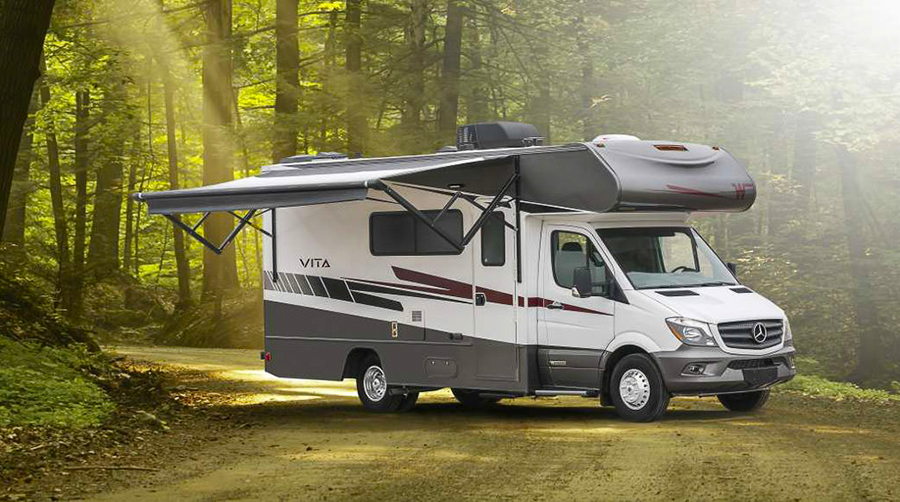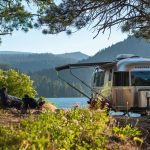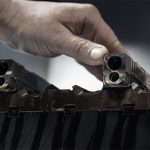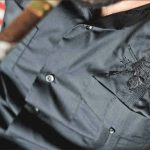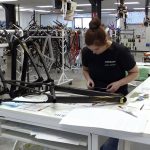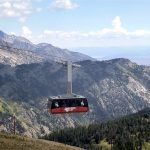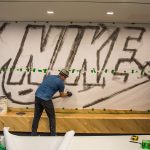Winnebago Industries reported a loss in the third quarter ended May 30 due to the impact of COVID-19 shutdowns but saw business recover in May and is optimistic about summer selling.
Highlights of the quarter include:
- March to May period impacted by shutdown and restart of operations due to global pandemic
- Focus on employee health and safety as business activities recover and consumers flock to outdoors
- RV market share growth continues witnessing positive retail momentum in June
- Year-to-date operating cash flow, up 96 percent over the prior year
- Liquidity remains strong with cash balances rising during the quarter to $152.5
Winnebago Industries said the company’s results were impacted by the unprecedented series of events related to the COVID-19 pandemic which included the suspension of manufacturing operations as well as disruptions across its dealer network, supply chain and end consumers during most of the quarter. In response, Winnebago Industries took immediate and decisive actions to keep employees safe, control costs and maintain its financial strength and flexibility. The company’s financial position remains strong primarily due to its variable cost structure, entering the crisis with a very healthy cash balance, and ample additional capacity under its revolving credit facility if needed. Winnebago Industries is continuing to adapt to this challenging period by prioritizing decisions that are in the best interests of both its employees’ health and its long-term business prospects.
Third Quarter Fiscal 2020 Results
Revenues for the Fiscal 2020 third quarter ended May 30, 2020, were $402.5 million, a decrease of 23.9 percent compared to $528.9 million for the Fiscal 2019 period. Revenues for Newmar, which was acquired in the first quarter of Fiscal 2020, were $88.0 million. Revenues excluding Newmar were $314.5 million, a decrease of 40.5 percent. Gross profit was $32.0 million compared to $86.6 million for the Fiscal 2019 period. Gross profit margin decreased 840 basis points in the quarter, primarily driven by deleveraging due to the significant revenue decline and an unfavorable mix as Towable’s revenue, as a percent of total revenue, was lower compared to the same period a year ago. Operating income was an $8.2 million loss for the quarter, compared to operating income of $49.0 million in the third quarter of last year. Fiscal 2020 third-quarter net income was a loss of $12.4 million, compared to net income of $36.2 million in the same period last year. Net loss per diluted share was 37 cents a share, compared to earnings per diluted share of $1.14 in the same period last year. Consolidated adjusted net loss per diluted share was 26 cents a share for the third quarter, excluding costs totaling $3.5 million, or $0.11 per diluted share, after-tax, driven by the non-cash portion of interest expense and restructuring charges. Consolidated Adjusted EBITDA was $4.1 million for the quarter, compared to $55.9 million last year, a decrease of 92.7 percent.
President and Chief Executive Officer Michael Happe commented, “Our third fiscal quarter was a uniquely challenging time for Winnebago Industries, as it spanned the most intense portion of the unexpected COVID-19 pandemic in the U.S. While the pandemic has significantly changed how we conduct business on a day-to-day basis, I couldn’t be prouder of how our teams have worked collaboratively to respond to this tremendous test. We would like to especially recognize and thank the first responders, health care professionals, and public health officials across the country and specifically in the communities in which we have a physical presence. As we ramp up operations across our portfolio, I have been inspired by the efforts our team members have put forth to ensure our manufacturing, warehouse, service, office, and remote environments are as safe as possible. Despite the COVID-19 disruption and ongoing related obstacles, we have not lost our focus on quality, innovation and customer service. We have grown market share, strengthened dealer and supplier relationships, and maintained key investments in initiatives critical to our future. Our portfolio of premium outdoor brands continues to perform well and be desired by channel partners and end consumers alike. Winnebago Industries’ North American RV retail market share was 11.7 percent on a trailing three-month basis through April 2020, up 1.7 share points (up 1.2 share points on an organic basis) over the same period last year. I want to thank all of our Winnebago Industries employees for their commitment and cooperation as we continue the process of returning to work in a thoughtful and safe manner. We are especially grateful for the support of our dealer network as they also guided their teams through these truly unique times with great passion and fortitude, always serving our collective end consumers during a time of extraordinary challenges.”
Towable
Revenues for the Towable segment were $188.9 million for the third quarter, down 45.5 percent from the prior year, primarily driven by the suspension of manufacturing and the disruption to consumer buying patterns due to COVID-19. The overall strength of the Towable product portfolio and increased consumer demand in the month of May, as stay-at-home orders were eased, has contributed to accelerated momentum, especially in the company’s Grand Design RV business. Winnebago Industries’ unit share of the North American towable market on a trailing three-month basis through April 2020, excluding folding and truck campers, was 10.7 percent, an increase of 2.0 share points over the same 2019 period. Segment Adjusted EBITDA was $16.5 million, down 71.2 percent from the prior year. Adjusted EBITDA margin of 8.7 percent decreased 780 basis points, primarily due to the deleverage related to the significant revenue decline. Backlog increased 86.7 percent, in units, over the prior year, reflecting a strong rebound in dealer demand in May as April was the period most impacted by COVID-19.
Motorhome
In the third quarter, revenues for the Motorhome segment increased 27.1 percent to $203.6 million, driven by the year over year impact of Newmar, which was acquired in November 2019, partially offset by the suspension of manufacturing and the disruption to consumer buying patterns due to COVID-19. The underlying demand for the Class B product line-up, including the Revel, Travato, Boldt, and Solis models, remains strong despite the impact of the pandemic. Winnebago Industries’ unit share of the North American Class B segment, on a trailing three-month basis through April 2020, was 45.4 percent, an increase of 5.2 share points over the same 2019 period. Excluding Newmar, segment revenues decreased 27.9 percent from the prior-year period. Segment Adjusted EBITDA was $(10.8) million, down $11.2 million from the prior year primarily due to the revenue decline and cost impact driven by COVID-19, partially offset by favorable mix and the addition of Newmar. Adjusted EBITDA margin of (5.3 percent) decreased 550 basis points primarily due to deleverage related to the significant revenue decline, partially offset by favorable mix driven by strong Class B demand and the contribution from Newmar. Backlog increased 99.2 percent, in units, over the prior year, due to the addition of Newmar and a strong rebound in dealer demand in May as April was the period most impacted by COVID-19.
Despite challenges posed by the COVID-19 pandemic, the operational integration of Newmar into the Winnebago Industries portfolio is proceeding as planned. The company remains focused on maximizing targeted synergies and expanding Newmar’s market share in the high-end motorhome segment.
Balance Sheet and Cash Flow
As of May 30, 2020, the company had total outstanding debt of $465.0 million ($553.5 million of debt, net of convertible note discount of $77.6 million, net of debt issuance costs of $10.9 million) and working capital of $299.8 million. Cash flow from operations was $162.4 million for the first nine months of Fiscal 2020, an increase of $79.6 million from the same period in Fiscal 2019.
Quarterly Cash Dividend
On May 19, 2020, the company’s board of directors approved a quarterly cash dividend of $0.11 per share payable on July 1, 2020, to common stockholders of record at the close of business on June 17, 2020.
Happe continued, “As we look ahead to the final quarter of Fiscal 2020, we are optimistic about the slope of our company’s and industry’s recovery path due to the strong demand rebound we witnessed in May and the positive trends we are seeing continue this summer. Retail and wholesale demand for outdoor recreation products are both recovering and headed in a strong upward direction as the COVID-19 pandemic has impacted travelers’ views toward how they desire to spend their leisure time experiencing nature and the outdoors. As states navigate the reopening of their communities, people are increasingly looking toward RVing and boating as ways to socially distance in a safe and memorable way. As indicated by our robust backlogs as compared to last year and our second fiscal quarter of 2020, Winnebago Industries’ RV, Marine, and Specialty Vehicles brands and businesses remain poised for strong growth and are solidly positioned to offer great value to our end consumers. Going forward, we are committed to prudently managing our business in a disciplined fashion to preserve liquidity and ensure that Winnebago Industries maintains the financial flexibility to continue to outpace the market and navigate the future.”
Photo courtesy Winnebago

